2018 Hyundai Tucson AWD vs Volkswagen Tiguan comparison
Hyundai’s well-liked Tucson gets a missing ingredient - all-wheel drive, for added money, though. Is it the SUV to buy or should you look at a VW Tiguan instead?
Published on Jun 11, 2018 06:00:00 AM
63,196 Views
Follow us on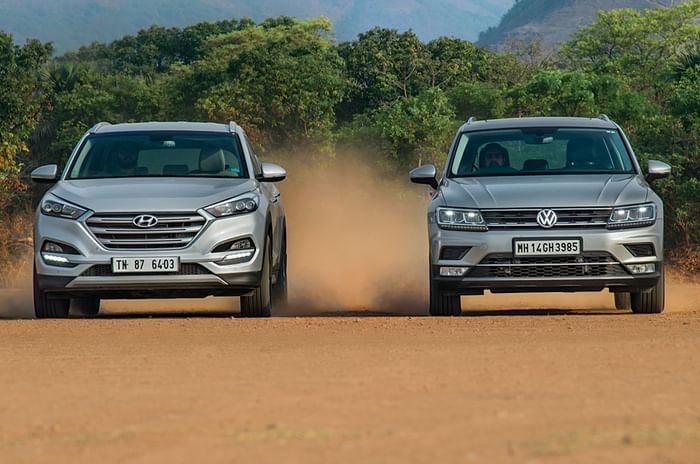
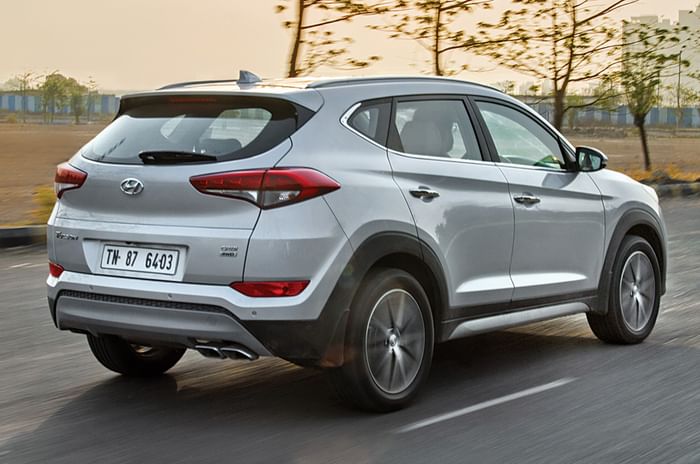
More absorbent ride over bad roads. Soaks up bumps nicely.
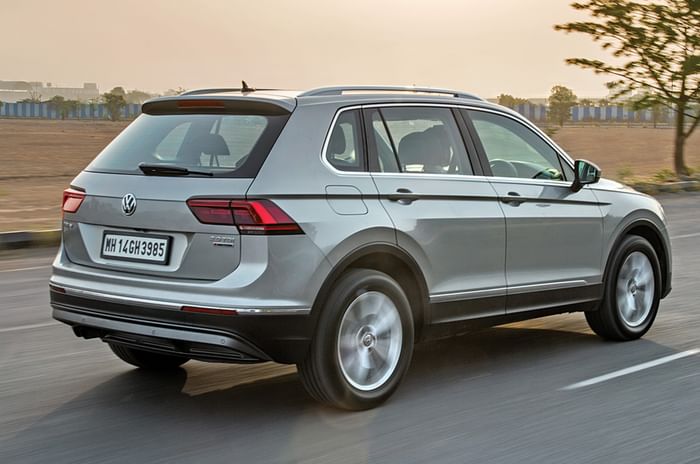
Has the firmer ride but stability at high speeds and agility is better.
As successful as Hyundai's Tucson has been, it's always missed one ingredient that you'd just expect on an SUV that costs upwards of Rs 20 lakh – all-wheel drive. The good news is, Hyundai has made amends and added the off-road hardware to its SUV. Offered solely with an automatic transmission and in one fully-loaded trim, the Tucson AWD has been priced at Rs 25.44 lakh (ex-showroom, Delhi).
The price brings the Tucson that little bit closer to Volkswagen's own all-wheel drive and automatic transmission SUV, the Tiguan. The Tiguan range starts at Rs 27.49 lakh and tops-off at Rs 30.88 lakh for the Highline trim featured here (both prices, ex-showroom, Delhi).
Let's quickly run through what's good and what's bad to find out which one of these two SUVs should find a spot in your parking.
| Hyundai Tucson Price, Mileage, Specifications, Features and Variants | |
|---|---|
| Brand | Hyundai |
| Model Name | Tucson |
| Hyundai Tucson Price | ₹ 33.67 - 42.39 lakh |
| Hyundai Tucson Range/Mileage | NA |
| Hyundai Tucson Specifications | SUV | 5 doors | 5 seats View All Specs |
| Hyundai Tucson Features | LED headlight | 10.25-inch Touchscreen display | 6 airbags View All Features |
| Hyundai Tucson Variants | Platinum 2.0 Petrol AT | Signature 2.0 Petrol AT | Platinum 2.0 Diesel AT View All Variants |
What are they like on the inside?
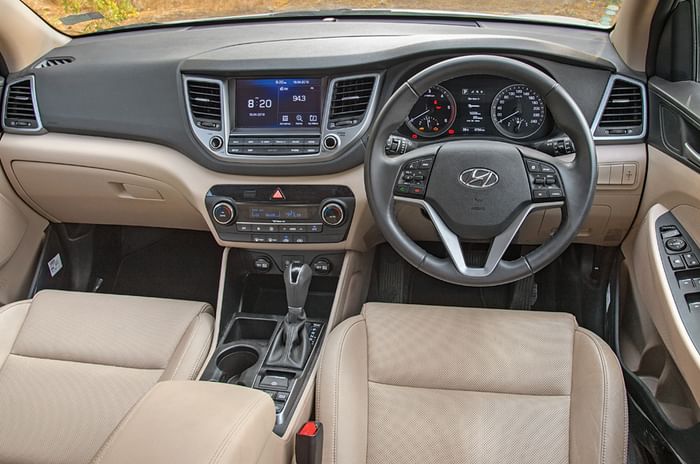
The Tucson is larger on the inside and, because of its beige-and-black interior, it feels more spacious, too. The interiors are nicely put together and fit-finish is decent. However, there aren't many soft-touch materials in the cabin (which is quite surprising, given the price) and because parts are shared with lesser Hyundais, the interiors don't feel all that rich. The driver is sat much higher in the Tucson, so it does feel like the substantially taller car when behind the wheel. Comfort levels are high, and the seats are well-cushioned and comfy. At the rear, it is the wider car, and seating three will be comfier in here. Even the backrest reclines to a comfy angle, and there is plenty of headroom and legroom.
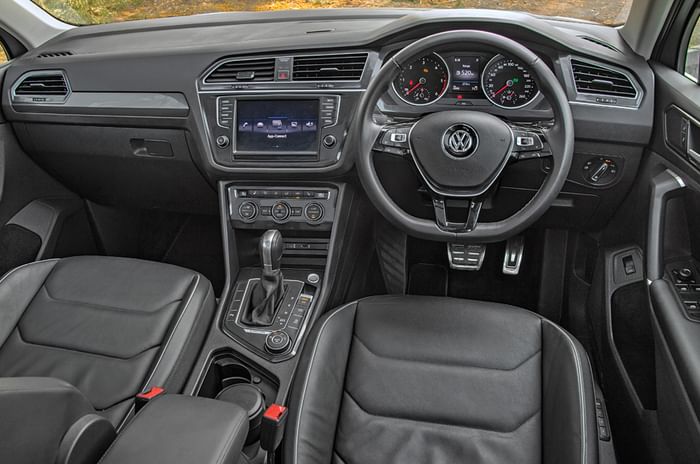
In comparison, the VW's interior is a lot classier and better-built; and although it's all-black, it feels airy thanks to the glass area and oversized panoramic sunroof that floods the cabin with light. Quality of materials is superb and there's a genuine luxury car feel on the inside. Being more compact in dimensions, the Tiguan does feel like a large hatch rather than an SUV, at times; but VW has utilised the length and space on the inside so much better, it often feels like it's the more spacious of the two. Visibility is also very nice, hence it feels at ease in city driving conditions. The seats are surprisingly more comfortable, at the front and the rear. You're sat a bit higher in the back and the seating position is chair-like, and in addition to reclining, the rear seat can be slid back and forth. In terms of boot space, it's the VW that has the larger 615 litres, as compared to the Tucson's 513 litres. The Volkswagen also has a flat boot lip, so it's easier to load heavy luggage.
| Dimensions | ||
|---|---|---|
| Hyundai Tucson GLS 4x4 AT | VW Tiguan Highline | |
| Length | 4475mm | 4486mm |
| Width | 1850mm | 1839mm |
| Height | 1660mm | 1672mm |
| Wheelbase | 2670mm | 2677mm |
| Boot space | 513 litres | 615 litres |
| Fuel tank | 62 litres | 71 litres |
| Tyre size | 225/55 R18 | 235/55 R18 |
How do they compare on features and safety?
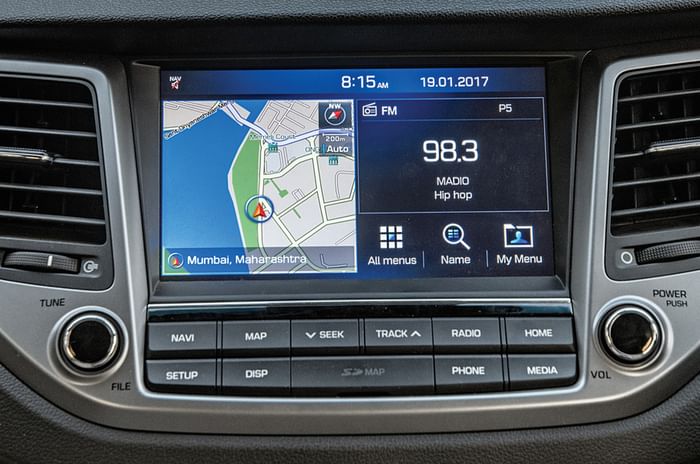
Both SUVs get 18-inch alloy wheels, leather upholstery, an electronic handbrake with an auto-hold function, an electronic tailgate, keyless entry and go, an electric-powered driver seat, a reclining second row and a touchscreen with Android Auto and Apple CarPlay. However, the Tiguan Highline is the better-equipped SUV as it gets premium kit like a massive panoramic sunroof, full-LED headlamps, memory for the driver's seat, three-zone climate control, heated front seats, paddleshifters, rain-sensing wipers and even a tyre pressure monitor. An interesting point to note is that the cheaper Tiguan Comfortline runs the Tucson AWD close on features while offering some kit that is missing on the Hyundai.
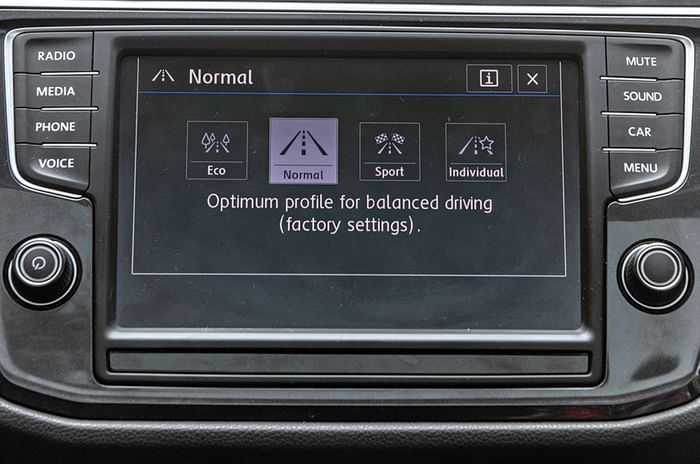
Both cars are quite evenly matched when it comes to safety kit. They each get six airbags, ABS, ESP, hill-start assist, hill descent control, front and rear parking sensors and a reversing camera. A unique safety feature on the Tiguan is its bonnet, which is raised in the event of a frontal collision, so as to minimise the force of impact on a pedestrian.
| Equipment and safety | ||
|---|---|---|
| Hyundai Tucson GLS 4x4 AT | VW Tiguan Highline | |
| Keyless entry/go | Yes | Yes |
| LED headlamps | Low beam | Yes |
| Panoramic sunroof | No | Yes |
| Climate control | 2-zone | 3-zone |
| Automatic wipers | No | Yes |
| Reverse camera | Yes | Yes |
| Rear split folding seats | 60:40 | 40:20:40 |
| Paddleshifters | No | Yes |
| Airbags | 6 | 6 |
What are they like to drive?
Both the SUVs are powered by 2.0-litre diesels, but it's the Tucson that has the more powerful engine, producing 185hp (42hp more than the Tiguan). Straight off the line, it is more responsive, smoother and marginally quieter. However, the mid-range is where it truly shines and displays plenty of muscle as well as good smoothness. While it does sound more strained as revs rise, it's nice to see that it remains energetic, even at higher engine speeds. The only problem with this engine is that is a bit too reactive, which makes for jerky progress in slow-moving traffic; even the gentlest tap on the accelerator results in very aggressive power delivery.
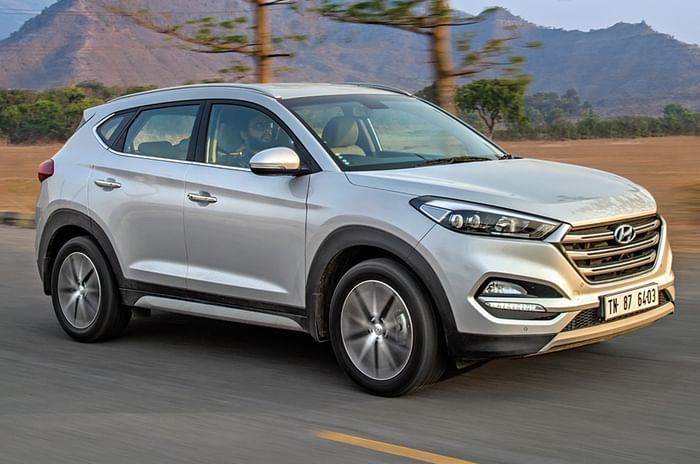
While the Tiguan's diesel engine makes only 143hp, it feels more than adequate for its size and weight. There is a bit of a delay before the power comes in, and although it doesn't feel as responsive as the Tucson, once you step on the accelerator it builds speeds quite briskly. Credit for this goes to the superb seven-speed dual-clutch gearbox which shifts ratios extremely quick and even masks the initial turbo lag rather well. In comparison to the Hyundai's six-speed auto, this is clearly the better unit.
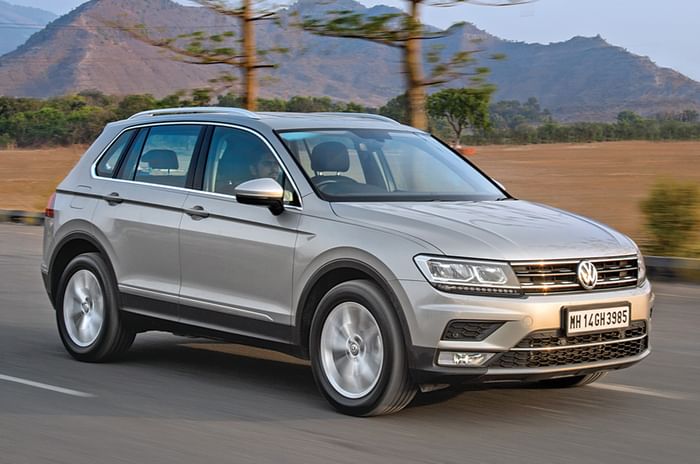
Despite the power disadvantage, the Tiguan accelerates to 100kph in just 10.55sec – that's just 0.5sec slower than the more powerful Tucson. However, it's when you accelerate to higher speeds that the engine begins to lose breath and the lack of power becomes noticeable; especially when the Tucson continues to pull strongly. Put your foot down at 40kph, and the Hyundai takes 7.78sec to reach 100kph – a scant 0.85sec quicker than the Tiguan's time.
What about ride and handling?
In other areas of the driving experience, both SUVs are very different. The Tucson feels like a much larger and heavier car from behind the wheel. As a result, it is more comfortable soaking up bumps and road imperfections. In comparison, the Tiguan has a slightly firmer edge, so while driving over broken roads, the suspension crashes and thuds, at times. However, it feels a lot nimbler, both in-city and on-highway, and also feels a bit sharper when driven around bends. The Tiguan’s steering is also nicer and feels livelier than the Tucson's. At high speeds, both cars feel equally confident and perform extremely well under hard braking. Still, it's the Tiguan's brake pedal that's more confidence-inspiring under everyday driving conditions.
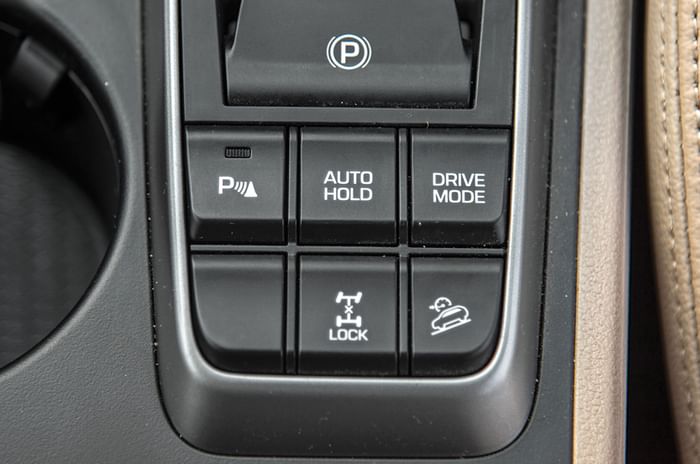
Off-road, both SUVs will go over mild trails with ease and will even manage slightly challenging sections well, but ultimately it's the Tiguan that feels more at home and confidence-inspiring in the rough.
Volkswagen's Haldex all-wheel-drive system automatically adjusts power between the front and rear axles. However, there's no permanent lock mode for the system. Instead, there are dedicated off-road modes that lock differentials, transfer power and change engine responses as well as gear shifts, based on user selection.
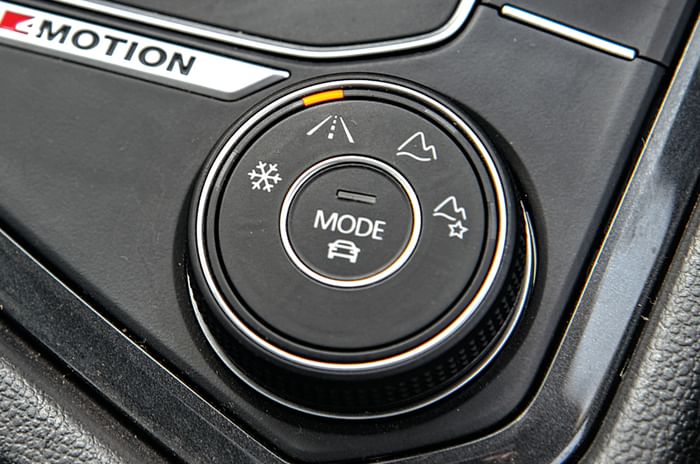
The Tucson has the advantage of a selectable lock function that transfers power to the front and rear wheels in a 50:50 ratio, giving drivers some more control over proceedings. Out on broken paths, Tucson buyers will also like the confidence of having a full-size spare tyre. The Tiguan gets only a space saver – although its tyres do get self-sealing tech to avoid the occurrence of punctures, to begin with.
| Powertrain and performance | ||
|---|---|---|
| Hyundai Tucson GLS 4x4 AT | VW Tiguan Highline | |
| Engine | 1995cc, 4cyls, turbo-diesel | 1968cc, 4 cyls, turbo-diesel |
| Power | 185hp at 4000rpm | 143hp at 4000rpm |
| Torque | 400Nm at 1750-2750 | 340Nm at 1750-2750rpm |
| Transmission | 6-speed automatic | 7-speed dual-clutch automatic |
| 0-100kph | 10.05s | 10.55s |
| 50-80kph | 3.71s | 3.70s |
| 20-80kph | 6.60s | 6.63s |
| 40-100kph | 7.78s | 8.63s |
| Braking 80-0kph | 23.68m | 23.47m |
| Fuel efficiency | 16.38kpl (claimed) | 17.06kpl |
Which one should I buy?
Were this a contest between the standard front-wheel-drive Tucson and the Tiguan, the massive Rs 8 lakh gulf in prices would have probably swung it the Hyundai’s way. But the price walk between the Tucson AWD to a similar spec Tiguan Comfortline is down to Rs 2 lakh. And even if you do go for the fully-loaded Tiguan that costs 5 lakh over the Tucson AWD, you get your money’s worth in the form of plenty more kit.

In isolation, the Tucson AWD works rather well as an urban SUV that can do a bit of off-roading, too. However, it’s the Tiguan that is a little nicer in the city and also that much more confidence-inspiring in the rough. It’s not imposing as some might like their SUV to be and it’s not cheap either, but a premium SUV buyer with a long wish list is sure to find the right match in the Tiguan.
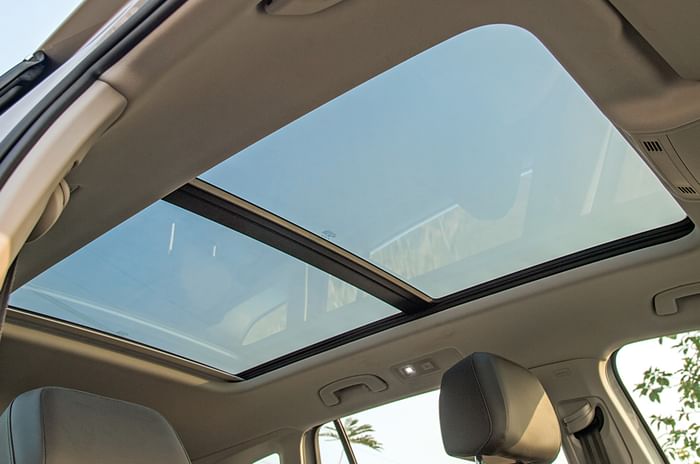
Before we conclude, here's a word of advice for anyone part of the small minority that primarily narrowed down on these SUVs for their abilities off-road: it's worth your time to wait for the Jeep Compass Trailhawk, which is due to launch soon. It may be smaller and less premium than this pair, but with its automatic transmission and more hardcore off-road-specific hardware (read transfer box), it could just tick the boxes that count for many people out there.
Copyright (c) Autocar India. All rights reserved.


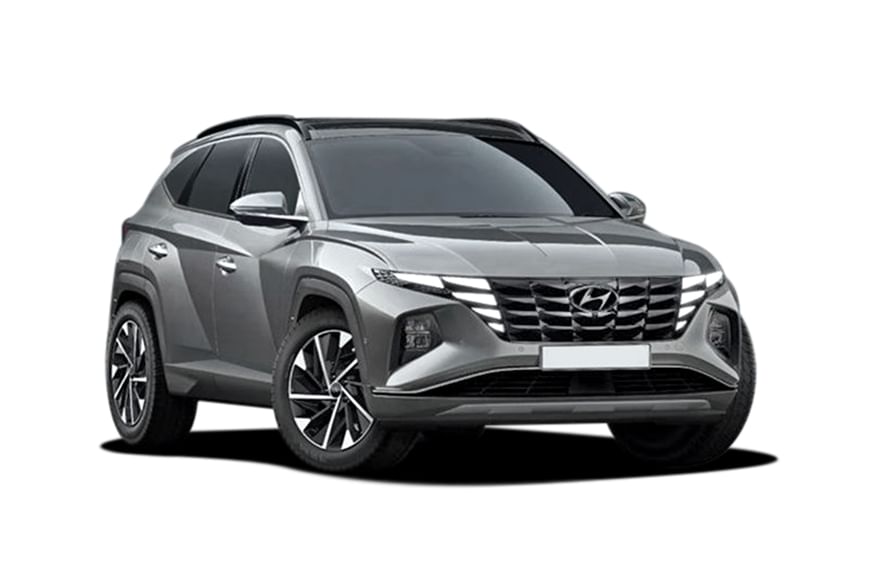


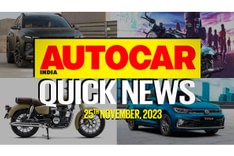

Comments
Member Login
Personal Details
No comments yet. Be the first to comment.